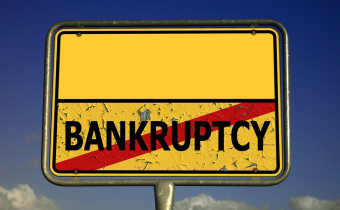
Filing for bankruptcy is often seen as a last resort. After all, it can crush your credit rating and leave you in a position where you’ll never be able to secure a bank loan or mortgage again. On the flip side, it’s also a necessary option as you can’t live with the stress of creditors chasing you forever.
At least when you apply for a chapter 7 or 13, you can attempt to rebuild your life without constantly looking over your shoulder. With so much to consider, it’s no wonder that you’re not sure how to feel.
Let us help you with a swift reminder.
You’re Still A Responsible Citizen
If being bankrupt meant that you weren’t a responsible citizen, nearly one million people would cease to be accountable or citizens! Yes, there are ways to make yourself feel like an integral part of the community, from donating money to voting and protesting legally and peacefully. However, a single mistake that escalates out of control fails to impact your standing. If anything, it highlights how you tried to carve out a better life for you and your loved ones. At least you attempted it, which is more than most people can say.
The Federal Government Is In Chapter 11 Bankruptcy
Yes, this is real. The Federal government has done a lot of dodgy stuff over the years, some things that you know about and others that put your constitutional rights in jeopardy, but this is one of the main cover-ups. Essentially, the chapter 11 started way back in the 18th century and has lasted until the present day. The gray area behind it is a different topic for another day. The pertinent point to remember is that if the government can file with all its money, then you can without feeling ashamed.
Some Debts Are Wiped
One of the reasons why bankruptcy rates have risen in recent years is the fact that some debts are wiped clean by the process. It’s worth noting that a lot of them continue to be active – they are called secured debts. However, unsecured arrears, such as student loans and bank agreements that aren’t backed by collateral, are taken off your record and you don’t have to pay them back. For many people, this is just another reason to file. Of course, it’s essential to understand the types of debts you possess and what will happen to them.
Filing Won’t Fix Everything
Although some of your arrears will disappear, you still have to pay the piper. This means losing some, if not all, of your assets. Also, there are fees to factor into the process, as well as your previous financial habits. If they don’t change, you’ll end up in the same situation again. Of course, it’s better to have a second chance than it is to be consigned to your fate. Filing won’t fix everything, yet it could lend a hand.
Do you need to file for bankruptcy? You should speak to a lawyer to find out.
